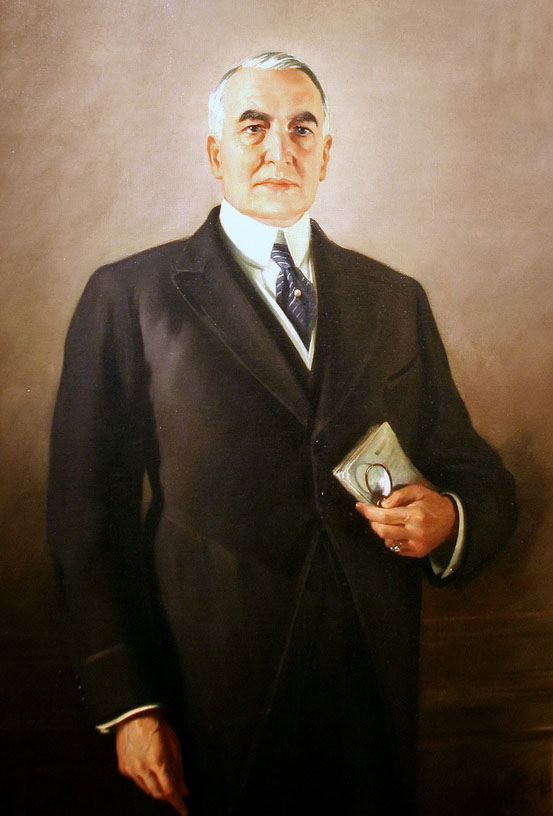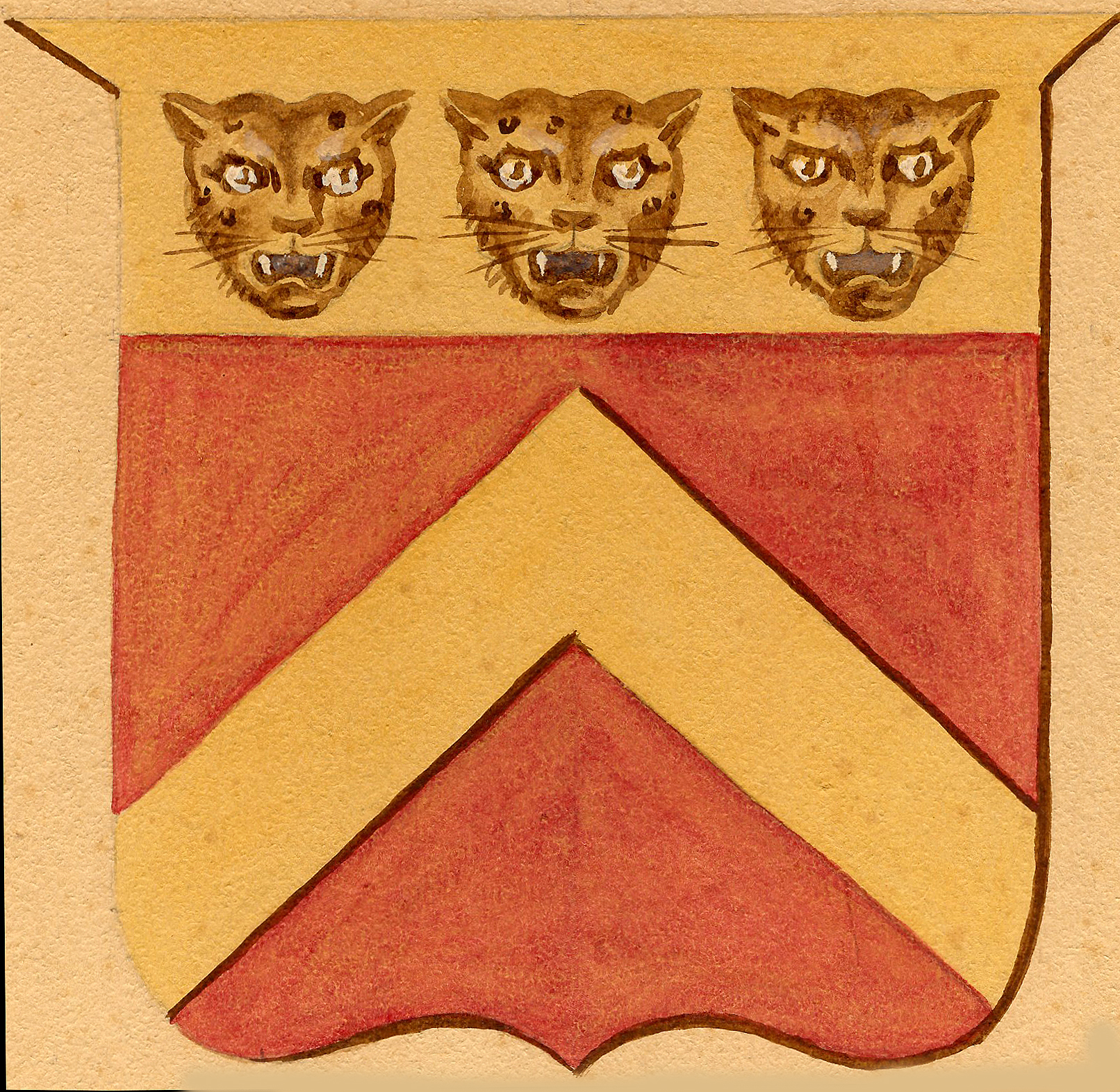|
Somerville Pinkney Tuck
Somerville Pinkney Tuck Jr. (May 3, 1891 – April 21, 1967) was an American diplomat. Early life "Kippy" Tuck was born on May 3, 1891, in New Brighton, Staten Island, New York. He was a son of Somerville Pinkney Tuck (1848–1923) and Emily Rosalie Snowden ( Marshall) Tuck (1858–1940), who died at her home in Bisterne in New Forest, England, in April 1940. His father had been presiding judge of the International Court of Egypt. His siblings were William Hallem Tuck, Alexander John Marshall Tuck (who married four times), and Carola Marshall ( Tuck) Mills (wife of British MP Sir John Mills). His paternal grandparents were Margaret Sprigg Bowie ( Chew) Tuck and William Hallam Tuck, a Judge of the Maryland Court of Appeals from 1851 to 1861. His maternal grandparents were Sara Rebecca Nicholls ( Snowden) Marshall (daughter of Col. Thomas Snowden) and Col. Charles Marshall of Baltimore, a Confederate Adjutant and aide-de-camp to General Robert E. Lee. Among his five m ... [...More Info...] [...Related Items...] OR: [Wikipedia] [Google] [Baidu] |
Stanton Griffis
Stanton Griffis (May 2, 1887 – August 29, 1974) was an American businessman and diplomat. Born in Boston, he earned a bachelor's degree from Cornell University in 1910. Griffis began his business career in 1919 after serving the Army General Staff with the rank of captain during World War I. While with Hemphill, Noyes & Co., Griffis financed Adolf Kroch's acquisition of Brentano's in 1933.Link via ProQuest. He also helped the Atlas Corporation manage Madison Square Garden (1925), Madison Square Garden. Griffis was named a trustee of Cornell in 1930 and led Paramount Pictures from 1935 to 1942. He became involved with diplomacy and non-governmental organizations during World War II, serving as special envoy to several western European nations from 1942 to 1943, and directing the Motion Picture Bureau, a division of the United States O ... [...More Info...] [...Related Items...] OR: [Wikipedia] [Google] [Baidu] |
Permanent Court Of International Justice
The Permanent Court of International Justice, often called the World Court, existed from 1922 to 1946. It was an international court attached to the League of Nations. Created in 1920 (although the idea of an international court was several centuries old), the Court was initially well-received from states and academics alike, with many cases submitted to it for its first decade of operation. Between 1922 and 1940 the Court heard a total of 29 cases and delivered 27 separate advisory opinions. With the heightened international tension in the 1930s, the Court became less used. By a resolution from the League of Nations on 18 April 1946, both the Court and the League ceased to exist and were replaced by the International Court of Justice and the United Nations. The Court's mandatory jurisdiction came from three sources: the Optional Clause of the League of Nations, general international conventions and special bipartite international treaties. Cases could also be submitted directl ... [...More Info...] [...Related Items...] OR: [Wikipedia] [Google] [Baidu] |
Vladivostok
Vladivostok ( rus, Владивосто́к, a=Владивосток.ogg, p=vɫədʲɪvɐˈstok) is the largest city and the administrative center of Primorsky Krai, Russia. The city is located around the Zolotoy Rog, Golden Horn Bay on the Sea of Japan, covering an area of , with a population of 600,871 residents as of 2021. Vladivostok is the second-largest city in the Far Eastern Federal District, as well as the Russian Far East, after Khabarovsk. Shortly after the signing of the Treaty of Aigun, the city was founded on July 2, 1860 as a Russian military outpost on formerly Chinese land. In 1872, the main Russian naval base on the Pacific Ocean was transferred to the city, stimulating the growth of modern Vladivostok. After the outbreak of the Russian Revolution in 1917, Vladivostok was Allied intervention in the Russian Civil War, occupied in 1918 by White Russian and Allies_of_World_War_I, Allied forces, the last of whom from Japan were not withdrawn until 1922; by that tim ... [...More Info...] [...Related Items...] OR: [Wikipedia] [Google] [Baidu] |
Cambridge University Press
Cambridge University Press is the university press of the University of Cambridge. Granted letters patent by Henry VIII of England, King Henry VIII in 1534, it is the oldest university press A university press is an academic publishing house specializing in monographs and scholarly journals. Most are nonprofit organizations and an integral component of a large research university. They publish work that has been reviewed by schola ... in the world. It is also the King's Printer. Cambridge University Press is a department of the University of Cambridge and is both an academic and educational publisher. It became part of Cambridge University Press & Assessment, following a merger with Cambridge Assessment in 2021. With a global sales presence, publishing hubs, and offices in more than 40 Country, countries, it publishes over 50,000 titles by authors from over 100 countries. Its publishing includes more than 380 academic journals, monographs, reference works, school and uni ... [...More Info...] [...Related Items...] OR: [Wikipedia] [Google] [Baidu] |
Hudson Snowden Marshall
Hudson Snowden Marshall (January 15, 1870 – May 29, 1931) was the United States Attorney for the Southern District of New York from 1915 to 1917. Early life Hudson Snowden Marshall was born on January 15, 1870, in Baltimore, Maryland. He was a son of Sarah Rebecca Nicholls ( Snowden) Marshall (1840–1929) and Colonel Charles Marshall (1830-1902), a Confederate Adjutant and aide-de-camp to General Robert E. Lee. He had one sister, Emily Rosalie Snowden Marshall (wife of Judge Somerville Pinkney Tuck), and three brothers, James Markham Marshall, Robert Edward Lee Marshall, and Charles Alexander Marshall. His paternal grandparents were Maria Rose ( Taylor) Marshall and Alexander John Marshall, nephew of Chief Justice John Marshall. His maternal grandparents were Thomas Snowden and Ann Rebecca ( Nicholls) Snowden. Through his sister, he was uncle to diplomat Somerville Pinkney Tuck, and businessman Alexander John Marshall Tuck. After primary school in Baltimore, he attende ... [...More Info...] [...Related Items...] OR: [Wikipedia] [Google] [Baidu] |
Robert E
The name Robert is an ancient Germanic given name, from Proto-Germanic "fame" and "bright" (''Hrōþiberhtaz''). Compare Old Dutch ''Robrecht'' and Old High German ''Hrodebert'' (a compound of '' Hruod'' ( non, Hróðr) "fame, glory, honour, praise, renown" and ''berht'' "bright, light, shining"). It is the second most frequently used given name of ancient Germanic origin. It is also in use as a surname. Another commonly used form of the name is Rupert. After becoming widely used in Continental Europe it entered England in its Old French form ''Robert'', where an Old English cognate form (''Hrēodbēorht'', ''Hrodberht'', ''Hrēodbēorð'', ''Hrœdbœrð'', ''Hrœdberð'', ''Hrōðberχtŕ'') had existed before the Norman Conquest. The feminine version is Roberta. The Italian, Portuguese, and Spanish form is Roberto. Robert is also a common name in many Germanic languages, including English, German, Dutch, Norwegian, Swedish, Scots, Danish, and Icelandic. It can be use ... [...More Info...] [...Related Items...] OR: [Wikipedia] [Google] [Baidu] |
Adjutant
Adjutant is a military appointment given to an officer who assists the commanding officer with unit administration, mostly the management of human resources in an army unit. The term is used in French-speaking armed forces as a non-commissioned officer rank similar to a staff sergeant or warrant officer but is not equivalent to the role or appointment of an adjutant. An adjutant general is commander of an army's administrative services. Etymology Adjutant comes from the Latin ''adiutāns'', present participle of the verb ''adiūtāre'', frequentative form of ''adiuvāre'' 'to help'; the Romans actually used ''adiūtor'' for the noun. Military and paramilitary appointment In various uniformed hierarchies, the term is used for number of functions, but generally as a principal aide to a commanding officer. A regimental adjutant, garrison adjutant etc. is a staff officer who assists the commanding officer of a regiment, battalion or garrison in the details of regimental, g ... [...More Info...] [...Related Items...] OR: [Wikipedia] [Google] [Baidu] |
Confederate States Army
The Confederate States Army, also called the Confederate Army or the Southern Army, was the military land force of the Confederate States of America (commonly referred to as the Confederacy) during the American Civil War (1861–1865), fighting against the United States forces to win the independence of the Southern states and uphold the institution of slavery. On February 28, 1861, the Provisional Confederate Congress established a provisional volunteer army and gave control over military operations and authority for mustering state forces and volunteers to the newly chosen Confederate president, Jefferson Davis. Davis was a graduate of the U.S. Military Academy, and colonel of a volunteer regiment during the Mexican–American War. He had also been a United States senator from Mississippi and U.S. Secretary of War under President Franklin Pierce. On March 1, 1861, on behalf of the Confederate government, Davis assumed control of the military situation at Charleston, South C ... [...More Info...] [...Related Items...] OR: [Wikipedia] [Google] [Baidu] |
List Of Judges Of The Maryland Court Of Appeals
The following are chronological lists of judges and chief judges of the Supreme Court of Maryland, known before December 14, 2022 as the Maryland Court of Appeals. List of chief judges List of all judges * Benjamin Rumsey, 1778–1806 * Benjamin Mackall IV 1778–1806 * Thomas Jones, 1778–1806 * Solomon Wright, 1778–1792 * James Murray, 1778–1784 *Richard Potts, 1801–1806 * Littleton Dennis Jr., 1801–1806 *John Thomson Mason, 1806–1806 * Jeremiah Chase, 1806–1824 * James Tilghman, 1806–1809 * William Polk, 1806–1812 * Richard Sprigg Jr., 1806 * Joseph Hopper Nicholson, 1806–1817 *John Mackall Gantt, 1806–1811 * John Buchanan, 1806–1844 * Richard Tilghman Earle, 1809–1834 *John Johnson Sr., 1811–1821 * John Done, 1812–1814 *William Bond Martin, 1814–1835 * Walter Dorsey, 1817–1823 *John Stephen, 1822–1844 * Stevenson Archer, 1823–1848 *Thomas Beale Dorsey, 1824–1851 *Ezekiel F. Chambers, 1834–1851 * Ara Spence, 1835–1851 * William B. S ... [...More Info...] [...Related Items...] OR: [Wikipedia] [Google] [Baidu] |
Benjamin Chew
Benjamin Chew (November 19, 1722 – January 20, 1810) was a fifth-generation American, a Quaker-born legal scholar, a prominent and successful Philadelphia lawyer, slaveowner, head of the Pennsylvania Judiciary System under both Colony and Commonwealth, and Chief Justice of the Supreme Court of the Province of Pennsylvania. Chew was well known for his precision and brevity in making legal arguments as well as his excellent memory, judgment, and knowledge of statutory law. His primary allegiance was to the supremacy of law and constitution. Trained in law at an early age by Andrew Hamilton, Benjamin Chew inherited his mentor's clients, the descendants of William Penn, including Thomas Penn (1702–1775) and his brother Richard Penn Sr. (1706–1771), and their sons Governor John Penn (1729–1795), Richard Penn Jr. (1734–1811), and John Penn (1760–1834). The Penn family was the basis of his private practice, and he represented them for six decades. He had a lifelong ... [...More Info...] [...Related Items...] OR: [Wikipedia] [Google] [Baidu] |



